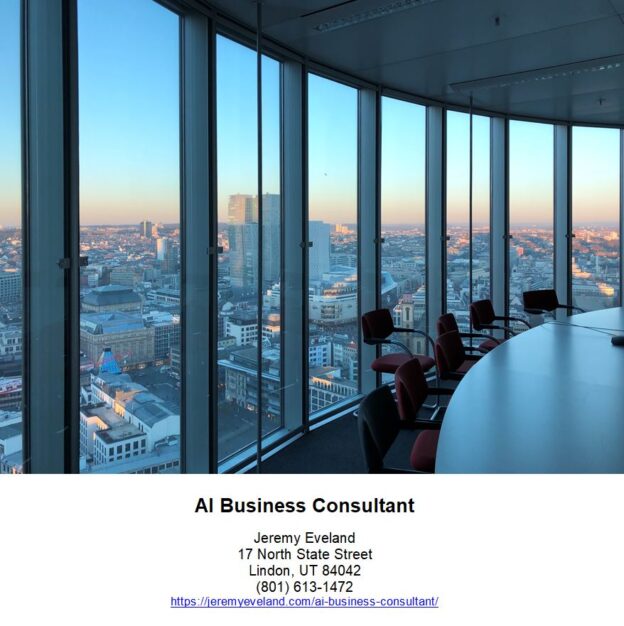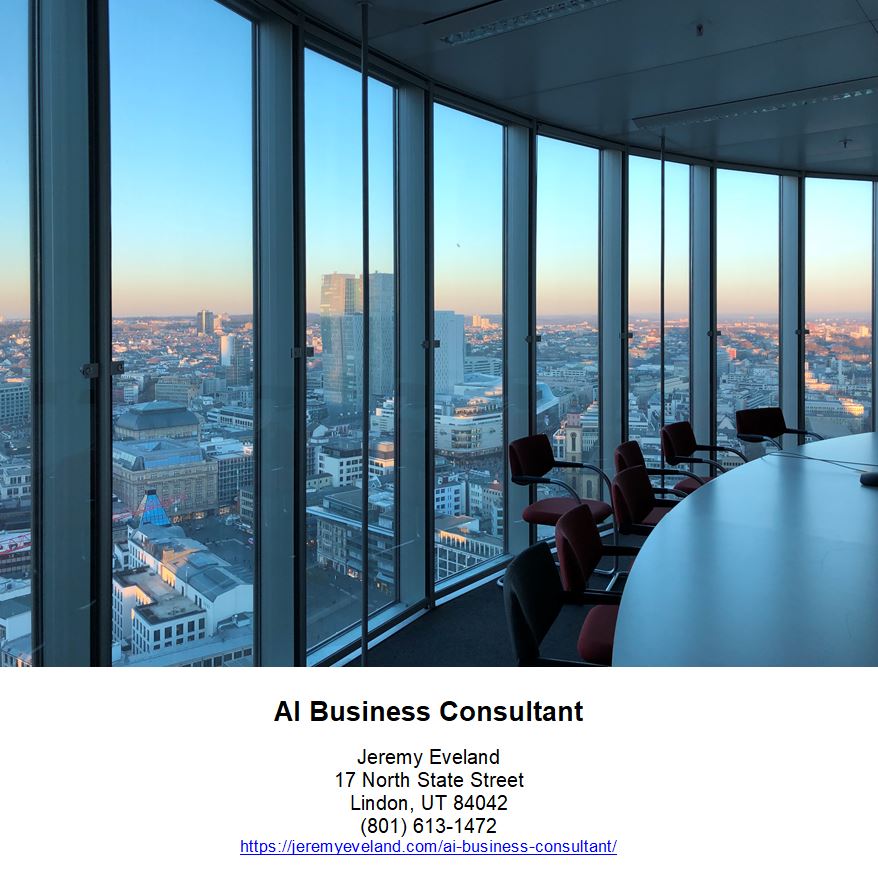Corporate Restructuring
-
Business Lawyer
- Introduction
- Corporate Restructuring: The Role of Business Consolidations
- Corporate Restructuring Strategies: What Works and What Doesn’t
- Corporate Restructuring: What You Need to Know
- Differences of LLCs
- Partnerships
- Corporations in Reorganization
- Exploring the Benefits of Corporate Restructuring
- Mergers and Acquisitions for Corporations
- Q&A
“Reorganize for Success: Unlock the Potential of Corporate Restructuring”
Introduction
Corporate restructuring is a process of reorganizing a company’s operations, finances, and/or ownership structure in order to improve its performance and profitability. It can involve changes to the company’s organizational structure, its financial structure, its ownership structure, or any combination of these. Corporate restructuring can be used to address a variety of issues, such as improving operational efficiency, reducing costs, increasing profitability, and responding to changing market conditions. It can also be used to facilitate mergers and acquisitions, or to prepare a company for sale. In any case, corporate restructuring is a complex process that requires careful planning and execution.
Corporate Restructuring: The Role of Business Consolidations
Corporate restructuring is a process of reorganizing a company’s operations, finances, and ownership structure to improve its overall performance. Business consolidations are a key component of corporate restructuring, as they involve the merging of two or more companies into a single entity. This article will discuss the role of business consolidations in corporate restructuring and the potential benefits and drawbacks of such a strategy.
Business consolidations are often used to create economies of scale, which can help a company reduce costs and increase efficiency. By combining two or more companies, a larger entity is created that can take advantage of shared resources, such as personnel, technology, and marketing. This can lead to cost savings, as well as increased efficiency and productivity. Additionally, consolidations can help a company gain access to new markets and customers, as well as new sources of capital.
However, business consolidations can also have drawbacks. For example, the process of combining two or more companies can be complex and time-consuming. Additionally, there may be cultural differences between the two companies that can lead to conflicts and disagreements. Furthermore, consolidations can lead to job losses, as redundant positions are eliminated.
Overall, business consolidations can be a powerful tool for corporate restructuring. By combining two or more companies, a larger entity is created that can take advantage of economies of scale and access new markets and customers. However, the process of combining two or more companies can be complex and time-consuming, and there may be cultural differences that can lead to conflicts and disagreements. Additionally, consolidations can lead to job losses. Therefore, it is important for companies to carefully consider the potential benefits and drawbacks of business consolidations before embarking on a corporate restructuring strategy.
Corporate Restructuring Strategies: What Works and What Doesn’t
Corporate restructuring is a complex process that requires careful consideration of a variety of factors. It is important to understand the different strategies available and the potential outcomes of each. This article will provide an overview of the most common corporate restructuring strategies, their advantages and disadvantages, and the factors to consider when deciding which strategy is best for a particular situation.
The most common corporate restructuring strategies are divestitures, mergers and acquisitions, spin-offs, and joint ventures. Divestitures involve the sale of a company’s assets or divisions to another company. This strategy can be used to reduce debt, raise capital, or focus on core business activities. Mergers and acquisitions involve the combination of two or more companies into a single entity. This strategy can be used to increase market share, gain access to new technology, or reduce costs. Spin-offs involve the separation of a company’s divisions or subsidiaries into independent entities. This strategy can be used to unlock value, increase focus, or reduce complexity. Joint ventures involve the collaboration of two or more companies to create a new entity. This strategy can be used to gain access to new markets, share resources, or reduce risk.
Each of these strategies has its own advantages and disadvantages. Divestitures can be used to quickly raise capital, but can also result in the loss of valuable assets. Mergers and acquisitions can create economies of scale, but can also lead to cultural clashes and integration issues. Spin-offs can unlock value, but can also lead to a lack of focus. Joint ventures can reduce risk, but can also lead to conflicts of interest.
When deciding which corporate restructuring strategy is best for a particular situation, it is important to consider the company’s goals, resources, and competitive environment. It is also important to consider the potential risks and rewards of each strategy. Ultimately, the best strategy will depend on the specific circumstances of the company.
In short, corporate restructuring is a complex process that requires careful consideration of a variety of factors. Different strategies have different advantages and disadvantages, and the best strategy for a particular situation will depend on the company’s goals, resources, and competitive environment. By understanding the different strategies available and the potential outcomes of each, companies can make informed decisions about how to best restructure their businesses.
Corporate Restructuring: What You Need to Know
Corporate restructuring is a process of reorganizing a company’s operations, finances, and ownership structure to improve its overall performance and profitability. It can involve a variety of strategies, such as mergers and acquisitions, divestitures, spin-offs, and reorganizations.
When considering corporate restructuring, it is important to understand the potential benefits and risks associated with the process. Restructuring can help a company become more competitive, reduce costs, and increase efficiency. It can also help a company access new markets, expand its product offerings, and improve its financial position. However, restructuring can also be a risky endeavor, as it can lead to significant changes in the company’s operations, finances, and ownership structure.
When considering corporate restructuring, it is important to understand the potential costs and benefits associated with the process. Restructuring can be expensive, as it often requires significant investments in new technology, personnel, and other resources. Additionally, restructuring can lead to significant changes in the company’s operations, finances, and ownership structure, which can be difficult to manage.
It is also important to understand the legal and regulatory implications of corporate restructuring. Depending on the type of restructuring being undertaken, the company may need to obtain approval from shareholders, creditors, and other stakeholders. Additionally, the company may need to comply with various laws and regulations, such as those related to antitrust, securities, and taxation.
Finally, it is important to understand the potential impact of corporate restructuring on the company’s employees. Restructuring can lead to job losses, changes in job roles, and other changes in the workplace. It is important to ensure that employees are informed of the changes and that their rights and interests are protected.
Corporate restructuring can be a complex and risky endeavor, but it can also be a powerful tool for improving a company’s performance and profitability. By understanding the potential costs and benefits associated with the process, as well as the legal and regulatory implications, companies can make informed decisions about whether or not to pursue restructuring.
Differences of LLCs
Limited Liability Companies (LLCs) are a popular business structure for entrepreneurs and small business owners. LLCs offer a number of advantages over other business structures, such as limited liability protection, pass-through taxation, and flexibility in management. However, there are some differences between LLCs and other business structures that should be considered when deciding which structure is best for your business.
One of the main differences between LLCs and other business structures is the amount of paperwork required. LLCs require more paperwork than other business structures, such as sole proprietorships and partnerships. This includes filing articles of organization with the state, creating an operating agreement, and filing annual reports. Additionally, LLCs must also comply with state and federal regulations, such as paying taxes and filing annual reports.
Another difference between LLCs and other business structures is the amount of liability protection they offer. LLCs offer limited liability protection, which means that the owners of the LLC are not personally liable for the debts and obligations of the business. This is not the case with other business structures, such as sole proprietorships and partnerships, which do not offer any liability protection.
Finally, LLCs offer more flexibility in management than other business structures. LLCs can be managed by one or more members, and the members can decide how the business is managed. This is not the case with other business structures, such as corporations, which must be managed by a board of directors.
Overall, LLCs offer a number of advantages over other business structures, such as limited liability protection, pass-through taxation, and flexibility in management. However, there are some differences between LLCs and other business structures that should be considered when deciding which structure is best for your business.
Partnerships
Partnerships are an important part of any business. They can help to increase the reach of a company, provide access to new markets, and create opportunities for growth. A successful partnership requires careful planning and consideration of the needs of both parties.
When entering into a partnership, it is important to consider the goals of each party. What are the objectives of the partnership? What are the expectations of each partner? What are the potential benefits and risks? It is also important to consider the resources available to each partner. What resources can each partner bring to the table?
Once the goals and resources of each partner have been identified, it is important to develop a plan for the partnership. This plan should include a timeline, budget, and responsibilities for each partner. It should also include a strategy for communication and conflict resolution.
It is also important to consider the legal aspects of the partnership. What type of agreement should be used? What are the legal implications of the partnership? What are the tax implications?
Finally, it is important to consider the long-term implications of the partnership. What are the potential opportunities for growth? What are the potential risks? How will the partnership be managed over time?
Partnerships can be a great way to expand a business and create new opportunities. However, it is important to consider all aspects of the partnership before entering into an agreement. By taking the time to plan and consider the needs of both parties, a successful partnership can be created.
Corporations in Reorganization
When a business is facing financial difficulties, it may be necessary to reorganize the company in order to ensure its survival. Reorganization is a process that involves restructuring the company’s finances, operations, and management in order to improve its financial health. This process can be complex and time-consuming, but it can also be a necessary step for a business to take in order to remain viable.
Reorganization typically involves restructuring the company’s debt, which may include negotiating with creditors to reduce the amount owed or to extend the repayment period. The company may also need to reduce its overhead costs, such as staff or rent, in order to free up funds for debt repayment. Additionally, the company may need to restructure its management and operations in order to improve efficiency and profitability.
In some cases, a company may need to file for bankruptcy in order to reorganize. This is a legal process that allows the company to restructure its debt and operations under the protection of the court. The court will appoint a trustee to oversee the reorganization process and ensure that the company’s creditors are treated fairly.
In other cases, a company may be able to reorganize without filing for bankruptcy. This is known as a “prepackaged” reorganization, and it involves negotiating with creditors to restructure the company’s debt and operations without the need for court intervention.
Regardless of the type of reorganization, the goal is to improve the company’s financial health and ensure its long-term viability. Reorganization can be a difficult process, but it can also be a necessary step for a business to take in order to remain viable.
Exploring the Benefits of Corporate Restructuring
Corporate restructuring is a process of reorganizing a company’s operations, finances, and/or ownership structure in order to improve its overall performance and profitability. It can involve a variety of activities, such as mergers and acquisitions, divestitures, spin-offs, and reorganizations. Restructuring can be a powerful tool for companies to improve their competitive position and increase their value.
The primary benefit of corporate restructuring is improved financial performance. By streamlining operations, reducing costs, and increasing efficiency, companies can improve their bottom line. Restructuring can also help companies to better manage their debt and capital structure, allowing them to access more capital and reduce their risk. Additionally, restructuring can help companies to better align their operations with their strategic objectives, allowing them to focus on their core competencies and become more competitive.
Restructuring can also help companies to better manage their resources. By consolidating operations, companies can reduce overhead costs and increase efficiency. This can lead to improved customer service, increased productivity, and improved profitability. Additionally, restructuring can help companies to better manage their workforce, allowing them to reduce labor costs and increase employee morale.
Finally, restructuring can help companies to better position themselves for the future. By restructuring, companies can become more agile and better able to respond to changing market conditions. This can help them to remain competitive and increase their value over time.
In summary, corporate restructuring can be a powerful tool for companies to improve their financial performance, manage their resources, and position themselves for the future. By taking advantage of the benefits of restructuring, companies can become more competitive and increase their value.
Mergers and Acquisitions for Corporations
Mergers and acquisitions (M&A) are a common strategy used by corporations to expand their operations, increase market share, and gain competitive advantages. M&A involves the combination of two or more companies into a single entity, or the purchase of one company by another.
The process of M&A can be complex and time-consuming, and requires careful consideration of the legal, financial, and operational implications of the transaction. It is important to understand the potential benefits and risks associated with M&A before entering into any agreement.
The first step in the M&A process is to identify potential targets. This involves researching the target company’s financials, operations, and competitive position in the market. Once a target has been identified, the next step is to negotiate the terms of the transaction. This includes determining the purchase price, the structure of the transaction, and any other conditions that must be met.
Once the terms of the transaction have been agreed upon, the parties must complete due diligence. This involves a thorough review of the target company’s financials, operations, and legal documents. This process helps to ensure that the transaction is in the best interests of both parties.
Once due diligence is complete, the parties must draft and execute the necessary legal documents. This includes a purchase agreement, which outlines the terms of the transaction, and any other documents required by law.
Finally, the parties must complete the closing process. This involves transferring ownership of the target company, transferring assets, and ensuring that all legal and financial obligations are met.
M&A can be a complex and time-consuming process, but it can also be a powerful tool for corporations looking to expand their operations and gain competitive advantages. By understanding the potential benefits and risks associated with M&A, corporations can make informed decisions that will help them achieve their strategic goals.
Q&A
Q1: What is corporate restructuring?
A1: Corporate restructuring is the process of reorganizing a company’s structure, operations, and/or finances in order to improve its performance and profitability. It can involve changes to the company’s ownership, management, operations, and/or financial structure.
Q2: What are the benefits of corporate restructuring?
A2: Corporate restructuring can help a company become more efficient, reduce costs, and increase profitability. It can also help a company become more competitive in the marketplace, attract new investors, and improve its overall financial health.
Q3: What are the risks associated with corporate restructuring?
A3: Corporate restructuring can be a risky process, as it involves making significant changes to a company’s operations and finances. There is a risk that the restructuring may not be successful, resulting in financial losses or other negative consequences.
Q4: What types of corporate restructuring are there?
A4: There are several types of corporate restructuring, including mergers and acquisitions, divestitures, spin-offs, joint ventures, and reorganizations. Each type of restructuring has its own advantages and disadvantages, and should be carefully considered before proceeding.
Q5: Who is involved in corporate restructuring?
A5: Corporate restructuring typically involves a variety of stakeholders, including the company’s management, shareholders, creditors, and other interested parties. All of these stakeholders must be consulted and their interests taken into account when making decisions about restructuring.
Q6: How long does corporate restructuring take?
A6: The length of time required for corporate restructuring depends on the complexity of the restructuring and the number of stakeholders involved. Generally, it can take anywhere from a few weeks to several months to complete the process.
Corporate Restructuring Consultation
When you need legal help with Corporate Restructuring call Jeremy D. Eveland, MBA, JD (801) 613-1472 for a consultation.
Jeremy Eveland
17 North State Street
Lindon UT 84042
(801) 613-1472
Related Posts
Business Transaction Lawyer Provo Utah
Trusted Personal Injury Attorneys in Utah
Legal Requirements to Start a Business
Real Estate Attorneys in Salt Lake City Utah
Business Contract Lawyer Riverton UT
Business Law and Intellectual Property
Commercial Litigation Strategies










